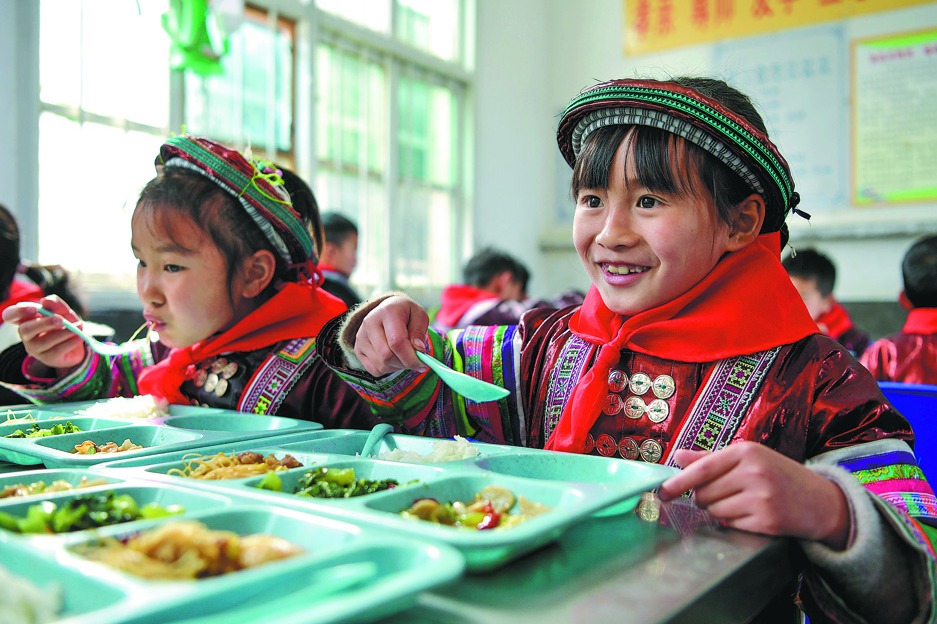Care for those who get old before they get rich
China Daily | Updated: 2022-01-13 08:00

The central government issued its public service development plan up to 2025 on Tuesday, which dedicates considerable parts to services for the aged, indicating that the country's response to its aging society will be more systematic.
The census last year shows that 18.7 percent of the population of the country were aged 60 years old and above, and 13.5 percent were aged 65 and above. After the single-child generation becomes old by the middle of this century, the challenge in caring for the aged will become acute.
At present, about 90 percent of aged people live with their families; 7 percent rely on the support of the community; 3 percent are in nursing homes. There are only 8.24 million beds in the nursing homes for the aged now. And only 0.1 percent of the elderly live on commercial insurance. Many senior citizens in rural areas do not have an old-age insurance account.
These reflect the urgency with which China should improve its basic care-for-the-aged system. The country should develop a national basic pension services list, and provide necessary support for the disabled elderly and the poorer elderly.
The government should increase the supply of relevant resources, develop a network of centrally managed and operated community elderly care services, promote the formation of 15-minute elderly care service circles, and vigorously develop rural mutual-aid elderly care facilities.
Notably, the plan proposes developing home-based and mutual-care facilities in the rural areas that are supported by the government and run by villages that will provide sustainable care services for the elderly.
If a feasible care model can be formed in rural areas, more young farmers will be liberated from the duty of caring for their aged family members. That can help ease the country's labor shortage.
The government should promote the integrated development of pension services, and the development of pension enterprises. At the same time, the government should encourage private capital to participate in elderly care services.
It should innovate community and home nursing institutions for the aged and prompt the market to assume a bigger role to meet the diverse needs of the elderly.
China should establish an equal public service system, ensure that basic public service resources continue to be given priority at the community level, in rural and remote areas and for people in need. This is a necessary step to promote social fairness and promote common prosperity.
























